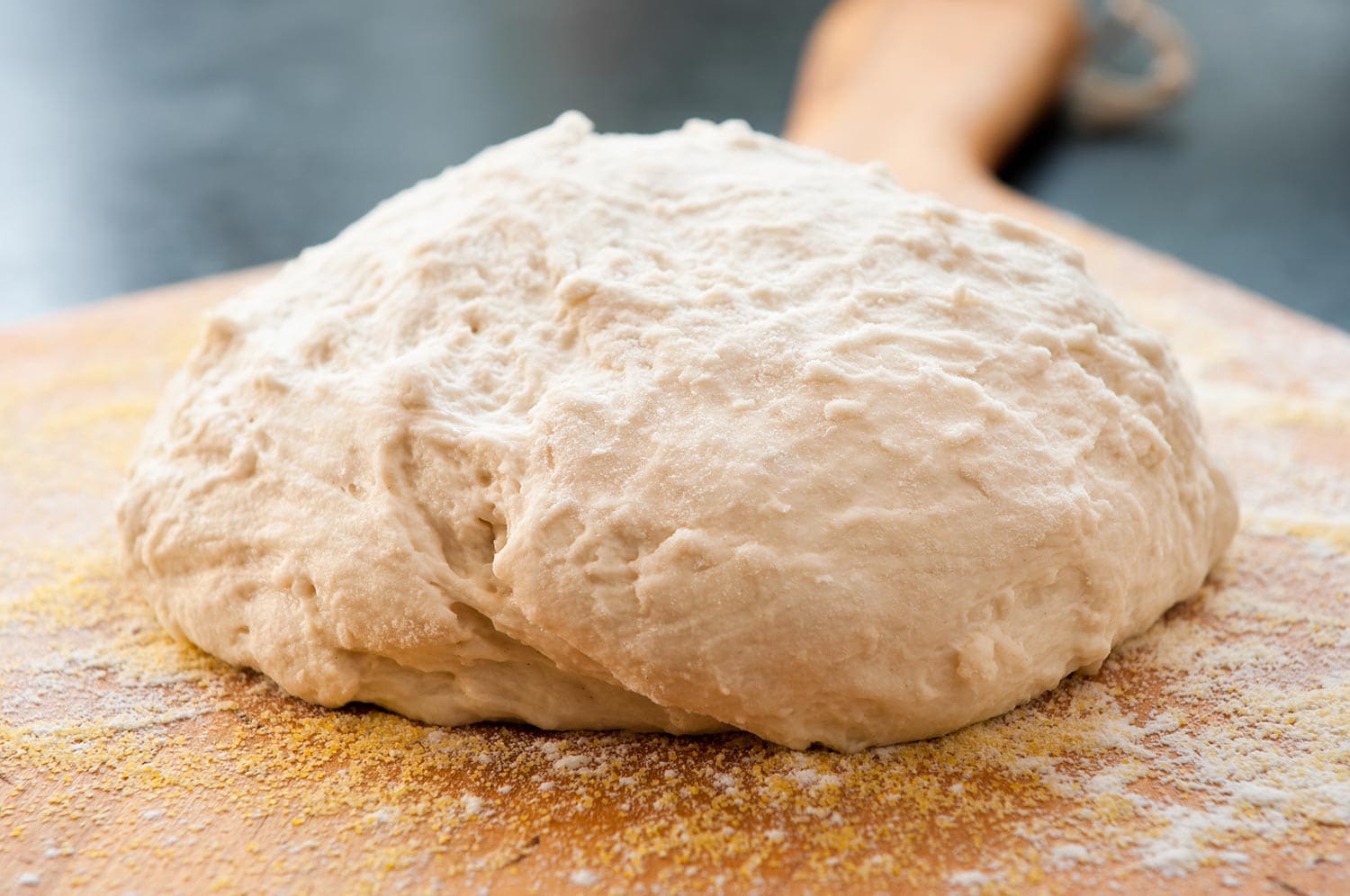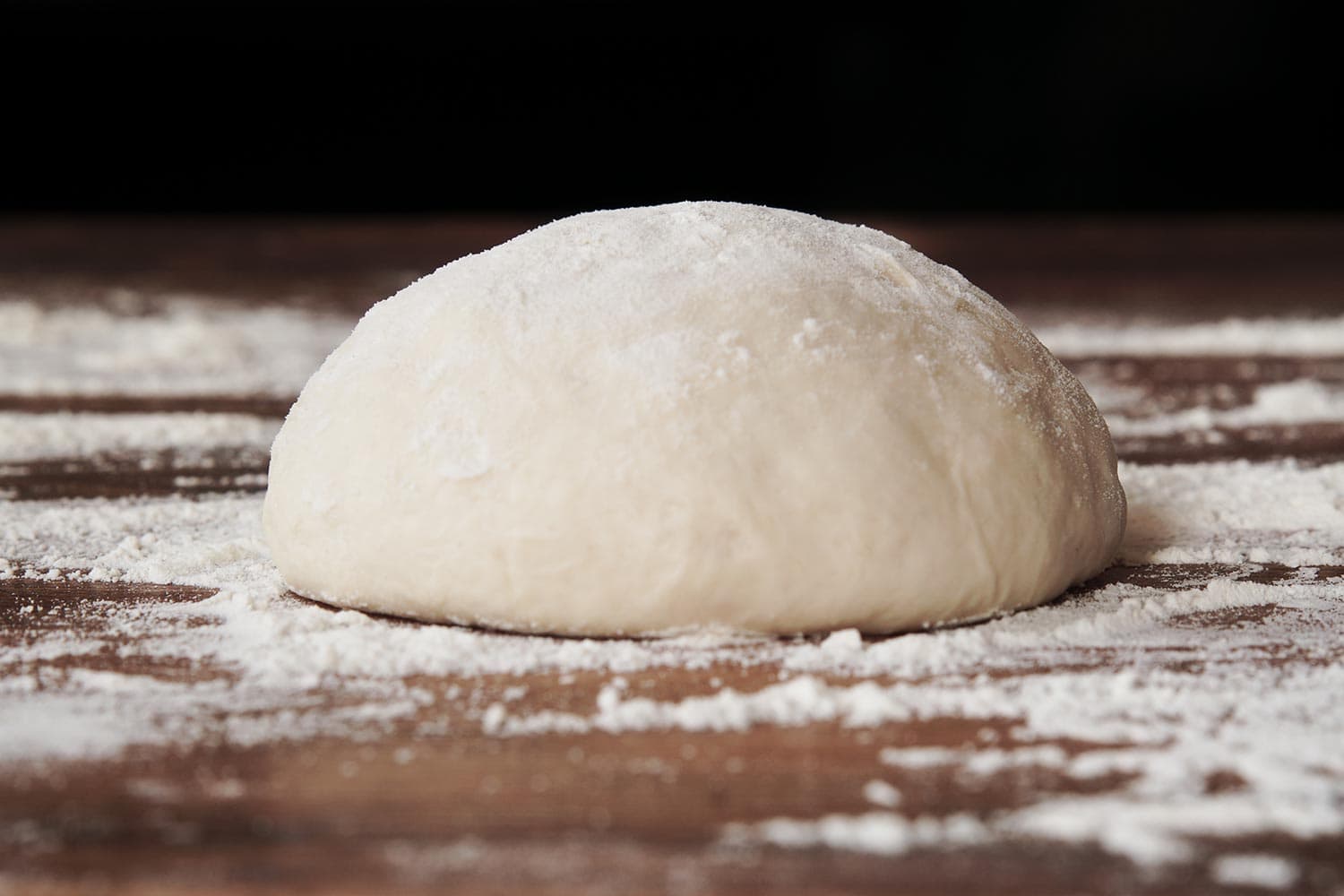For the best recipe, you can leave the dough to rest for a few hours, sometimes longer. But, what do you do when something comes up and you have to cook later? Or, maybe your recipe requires the dough to rest for a few days. Can you store the dough in the fridge to maintain freshness? We researched to bring you the following answers.
Typically, you can store your dough in the fridge for 2 to 3 days or up to 5 days. You could also freeze it for 2 to 8 months. Below is a table with different doughs and the length of time you can store each in the fridge and freezer:
| Dough Type | Storage time in the refrigerator | Storage time in the freezer |
| Bakri dough | 1 to 2 days | Not recommended |
| Pizza dough | 2 to 3 days | 2 to 3 months |
| Pastry dough | 2 days | 6 months |
| Bread dough | 2 to 3 days | 6 to 8 months |
| Naan dough | 2 to 3 days | 2 to 3 months |
| Chapati dough | 3 to 4 days | 2 weeks |
| Biscuit dough | 3 to 5 days | 2 to 3 months |
| Cookie dough | 3 to 5 days | 3 months |
Keep reading as we discuss reasons for storing different types of dough in the fridge and for how long. Also, learn the steps on how to properly store your dough, and what you need to do to ensure the dough stays fresh.

Reasons For Storing Dough In The Fridge And How Long It Lasts
Sometimes it is inevitable to store your dough in the fridge. It could be for a few hours, days, or even weeks. Let us explore three types of dough and the reasons for storing them in the fridge and how long they last.

Cookie Dough
Do you want to bake cookies full of flavor? Chill the cookie dough in the fridge for at least 30 minutes before baking it. It is one way to improve the taste of your cookies.
Check out this cookie dough on Amazon.
Chilling Cookie Dough In The Fridge
Chilling stops the cookies from spreading too quickly when you put them in the oven. This is because, it takes longer to melt when it solidifies after being chilled. It results in cookies that hold onto their texture, making them fuller.
If you still want your cookies to have a more concentrated flavor with a darker color, you can store them in the fridge for longer, for example, 10 days. The longer it stays inside the fridge, the more it dries out, causing the ingredient flavors to concentrate more, making them sweeter and chewier.
Freezing Cookie Dough
You could also freeze your cookies for up to 3 months as seen in the table above. After dropping the scoops of dough on the baking sheet, place them in the freezer for 30 minutes.
When they are hard enough, put them inside a re-sealable plastic bag or silicone zip-top bag like the one shown below.
Remember that to thaw the dough, allow it to sit overnight in the fridge. Also, bake them for 3 to 5 minutes longer than what the recipe requires.
Check out these storage bags on Amazon.
Biscuit Dough
For the best biscuits, first and foremost use the best ingredients. The basic ingredients include flour, fat, sugar, salt, liquid such as milk, and baking powder. Mix them well until you create a dough.
Chilling Biscuit Dough In The Fridge
Knead the dough into a consistent form. Next, chill the dough in the fridge for 20 to 30 minutes for more flavorful biscuits because the butter hardens, and the gluten relaxes. The longer they chill, the higher they will rise and the better their shape.
Freezing Biscuit Dough
You can store your biscuit dough in the freezer for a rainy day. Cut out your biscuits with a biscuit cutter like the one above, arrange them on a parchment-lined baking sheet, cover with a plastic wrap, and put them in the freezer.
Check out this biscuit cutter set on Amazon.
Pizza Dough

Pizza dough has a short shelf life, especially if you add dairy products such as milk, yogurt, butter, and sour cream. For your dough to last longer in the fridge, skip the dairy products and use flour, sugar, salt, water, and yeast.
Storing Pizza Dough In The Fridge
After you make your dough, let it rest until it doubles in size. Afterward, you can store the dough for a minimum of 3 days if you prepare it with cold water and up to 5 days if you use warm water. As reiterated earlier in this post, store it in small batches in an air-tight container.
If it stays more than 5 days, it can become slimy and discolored. A crust could also form on the dough.
Freezing Pizza Dough
You can freeze the dough for up to 3 months. But, it’s good to note that pizza dough is susceptible to freezer burn, or freezer crystals could form. Hence, if you notice any of these signs, you might have to make fresh dough. This is because the pizza your pizza may not turn out good; light, crispy, and looking vibrant.
Bread Dough

You can also put bread dough in the refrigerator to improve the flavor. The cool temperatures in the fridge slow down yeast activity. This subsequently slows down the production of gas, causing it to rise much slower.
When the dough rises slowly, the yeast breaks down the starch, improving the bread’s flavor. In addition, gluten gives the bread a more elastic texture.
Storing Bread Dough In The Fridge
If you don’t have time to bake bread, you can store it in the fridge for an extra day or two to prevent it from over-proofing. Try and do this before it rises. This gives it time to rise slowly for 12 to 24 hours, while in the fridge depending on the amount of yeast in it and the temperature set.
Refrigerating the dough when it rises fully hardens it and causes it to lose its elasticity. That means you will have to allow the bread to rise again after taking it out of the refrigerator.
Freezing Bread Dough
You can freeze your bread dough for 6 to 8 months. However, it may not be a good idea to freeze your bread dough in a home freezer due to the frequent closing and opening of the door causing the temperature to fluctuate. Moisture will find its way into the freezer and may ruin your dough.
Besides, freezing the dough kills close to 30% of the yeast, thus weakening its gluten structure.
To solve this issue and successfully freeze your bread dough, you may incorporate the following when making the dough:
- Since gluten is a constituent of protein, you need flour with high protein content.
- Increase the amount of yeast you use by 50 to 75% to compensate for the yeast that dies in the dough while it's in the freezer.
- Use spring or filtered water instead of tap water. The latter contains chlorine which interferes with yeast survival in your dough.
- Use dough with lower hydration to help the gluten stay strong.
- You could consider adding citric acid to the dough to retain its volume after freezing it.
- You could also consider adding sugar because it binds the dough well and activates the yeast when it thaws.
How To Properly Store Dough In The Fridge

The length of time you store the dough in the fridge depends on the type of dough and for what purpose. Irrespective of the type of dough, there are steps that you need to follow to properly store it to keep it fresh and last long in the fridge.
Place Dough In A Dry Container
Once your dough is ready, store it in a plastic airtight container, either with a plastic lid or wrap.
You could also store it in a plastic zippered bag, but first, you have to press out the air before placing the dough inside and then sealing it.
Apply Oil To The Dough

Applying oil to the dough provides a protective layer that blocks out bacteria, and also prevents it from sticking and tearing when removing it from the container. Light vegetable oil such as canola is good enough.
Also, you do not have to pour a lot of oil into the dough. A few drops to glaze it will do.
Cover Dough In Cling Film Or Plate
You can cover the container with a lid, plate, or cling film. All the methods will keep your dough fresh, but the cling film will provide the best protection and extend the time stored in the fridge by a few days.
In addition to the above steps, it's important to ensure the dough is:
Moist
Moisten your dough before keeping it in the refrigerator or freezer. The cold temperature will cause the moisture to be absorbed from the dough, drying it out.
If it happens to be quite dry when you take it out, you can add some oil and water and knead it again.
Thoroughly Kneaded

Knead it thoroughly because the texture of the dough before storing it in the fridge changes and is different after removing it from the fridge.
Kneading your dough well, helps you get the best dough consistency, even after storing it in the fridge.
Stored In Batches
It’s more hygienic to store the dough in smaller batches, which also lasts longer. It is better than placing a large dough in one container, which you have to open and touch many times each time you need to bake.
In Closing
There’s more to just kneading dough. For the best recipe, or you don’t have time to bake, you can store your dough in the fridge for a few days or weeks or freeze it for several months. In addition, there are crucial steps that you need to take to preserve the dough properly.
Is it easier to make pizza when the dough is cold? Find out by clicking here: "Should Pizza Dough Be Warm Or Cold?"
Learn more about defrosting cookie dough before baking by clicking here: "Defrosting Cookie Dough Before Baking"






![Baker making yeast for his bread mix, How Long Does Pizza Dough Last In The Fridge? [Homemade and Store Bought]](https://kitchenseer.com/wp-content/uploads/2022/02/Baker-making-yeast-for-his-bread-mix-250x250.jpg)


